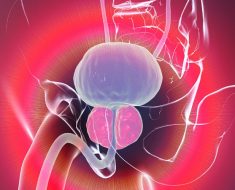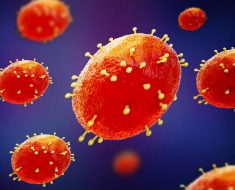Sometimes it took three nurses to hold me down. This may sound extreme, but it was entirely necessary, as I had a tendency to cry, squirm my way out of my chair and run down the hallway of the pediatric phlebotomy department to escape.
It was the summer between second grade and third grade, and because of complications with the chickenpox virus, I ended up with idiopathic thrombocytopenic purpura, which meant I needed to get my blood drawn weekly. ITP is a blood disorder characterized by low platelet counts and bruising very easily and can look a lot like leukemia. In order to make sure my counts weren’t veering into dangerous territory, I had a standing weekly appointment for a blood test for an entire summer.
I’m not sure who dreaded these appointments more: me or the nurses tasked with collecting my blood samples. As soon as I’d sit in that hard plastic chair with one elongated armrest, I would transform from a sassy but mild-mannered 7-year-old into a creature from a horror film. I had always been scared of needles, but this time, it wasn’t just a vaccine I was getting in the school nurse’s office. I knew the results of this blood test could mean I was sick enough to have to stay in the hospital overnight.
Eventually, I did make it through all my appointments that summer, and my platelet counts returned to normal. As a peace offering, my mother made me draw an "I’m sorry" picture for the nurses at the lab, probably in the hopes that my terrible behavior wouldn’t end up on my permanent medical record.
But it didn’t end there. For years, every time I had to get a shot or have my blood drawn, I’d be nauseated for several days before the injection because of the anxiety. This lasted well into my 20s, and every time the needle would come out in the doctor’s office or lab, I’d try to convince myself that this time will be different and I’ll be fine.
And strangely, one day, it was. But before I get into what ended up finally working for me, here’s what I learned from speaking to two physicians about trypanophobia — a fancy word for the extreme fear of needles.
What causes a fear of needles?
Like many fears, trypanophobia can stem from a variety of experiences or conditions. On a logistical level, a person (like myself) might have very small veins, which can make it difficult for blood to be drawn, sometimes necessitating multiple needle sticks as the clinician attempts to locate a good vein, Dr. Mimi Trinh, a family medicine physician at Saddleback Medical Center in Laguna Hills, California, tells SheKnows.
But there are plenty of psychological reasons behind having a fear of needles too.
"Needle-phobic people may have had previous painful experiences (learned conditioning) with injections or vicariously through witnessing a family member having had an undesirable experience with needles or injections," Dr. Trung Tristan Truong, a pediatrician at MemorialCare Medical Group in San Juan Capistrano, California, tells SheKnows. He also notes that it’s possible there may be a hereditary predisposition to the phobia.
Other potential reasons for having a fear of needles can include generalized anxiety or having a sensitive or negative temperament, previous trauma, having fainted or had severe dizziness due to a vasovagal response to shots or blood draws in the past, hypochondria, sensitivity to pain or memories of painful needle sticks and a fear of being restrained, Trinh says.
What can help someone get over a fear of needles?
Like the causes of a needle phobia, the possible ways to help can be both physical and psychological. For example, Trinh says that psychotherapy, cognitive behavioral therapy and exposure therapy can all be useful in treating various types of phobia.
"Therapists are trained to help patients develop coping skills towards certain fears and exploring where the fears may be coming from," Trinh notes. "However, if underlying anxiety could be a factor, then treatment with medications to help reduce anxiety may help as well."
In more extreme cases, Truong says that some people find taking antianxiety medications helpful as well as nonmedical anxiety-reducing techniques, like deep breathing, reading, listening to music or watching a video. A chest-to-chest hug for a child from a parent or guardian may also be comforting for them, he notes. Children may also fare better if they are offered a reward after receiving their shots or having their blood drawn, Truong adds.
If the physical pain is the root cause of the fear, Truong says that there are numbing creams or gels that may be applied over the injection site prior to the medical visit as well as devices (like the Buzzy) that can transmit cold and vibration sensation to the skin to distract from or divert the actual pain sensation from the needle or injection using the concept of "gate control theory of pain."
What worked for me?
At some point during my mid to late 20s, my fear of needles kind of just went away on its own without me really realizing it until after I had my blood drawn and was walking home from the doctor’s office. At that stage of my life, my unmedicated anxiety disorder and depression were really kicking into high gear, and compared with everything else I was anxious and/or depressed about, a little needle didn’t seem that bad.
I also realized that this pain I was so afraid of was actually quite minimal when compared to other types of pain I experience on a regular basis — primarily menstrual cramps. Those suckers are so excruciating every month that when it came time to getting a shot or blood drawn, I’d go into it bracing for the pain of period cramps, and when that skinny needle made its way into my arm, it felt like a gentle caress in comparison.
Of course, not everyone can be this lucky when it comes to painful periods and anxiety and depression, but in both cases, it was more a matter of me putting this short rendezvous with a needle into perspective. Not only has this made trips to the doctor easier, it has also freed up the time I previously spent making apology drawings for nurses and phlebotomists, so win-win.
Source: Read Full Article





